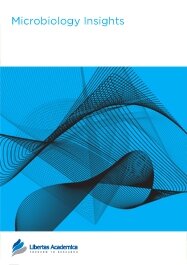

Publication Date: 14 Jul 2008
Journal: Microbiology Insights
Citation: Microbiology Insights 2008:1 25-40

1School of Biology-Oriented Science and Technology, Kinki University, 930 Nishimitani, Kinokawa, Wakayama 649-6493, Japan. 2BML Food Science Solutions, Inc., 2-51-13 Ikebukuro, Toshima-ku, Tokyo 171-0014, Japan. Present address. 3Graduate School of Marine Science and Technology, Tokyo University of Marine Science and Technology, 4-5-7 Konan, Minato-ku, Tokyo 108-8477, Japan.
Abstract
The effects of sanitation treatments including chlorination (ca 10 ppm available chlorine) of agricultural water and ethyl alcohol (70%) spraying on packing shed equipment on microbial contamination on fruits and the environment were determined and compared with those in conventionally managed field and packing shed in persimmon and satsuma mandarin orchards. Chlorinated water reduced the microbial counts to levels below the lower limit of detection (1.4 log CFU/ml for bacteria and 2.0 log CFU/ml for fungi) in most agricultural water samples. Microbial counts of pesticide solution, which contained the agricultural water or chlorinated water for the mixture, were lower in sanitary field than in control field in both fruit orchards. The number of bacterial and mold species detected in agricultural water, chlorinated water, and pesticide solution were almost proportional to microbial counts in each sample throughout the year. The chlorination treatment of agricultural water tended to reduce the counts of mesophiles and fungi on the peel of persimmon fruit during production season. The ethyl alcohol spray treatment on packing shed equipment resulted in a substantial microbial reduction on plastic harvest basket and container in persimmon orchard and plastic harvest basket and container, gloves, scissors, and size sorter in satsuma mandarin orchard. The spray application on packing shed equipment reduced the counts of mesophiles and fungi on the peel of persimmon fruit by 1 log CFU/g. The number of satsuma mandarin packing shed equipment containing the species found on fruit peel was higher in control than in sanitary packing shed. No human pathogens such as verotoxin-producing Escherichia coli and Salmonella were detected in any of the fruit and environmental samples. These results indicate that uses of sanitizers such as chlorine for agricultural water and ethyl alcohol for packing shed equipment would be useful in a good agricultural practices program of persimmons and satsuma mandarin.
PDF (277.64 KB PDF FORMAT)
RIS citation (ENDNOTE, REFERENCE MANAGER, PROCITE, REFWORKS)
BibTex citation (BIBDESK, LATEX)

My experience with Libertas Academica publications has indicated that Libertas Academica has not only implemented a highly efficient reviewer system, which provides candid and valuable comments on manuscripts, but also assembled a dedicated editorial production team, which is constantly striving for world-best practice. I recommend Libertas Academica publications highly.
Facebook Google+ Twitter
Pinterest Tumblr YouTube